SUMMARY
VENOM: None
PREVALENCE: Somewhat Common
ACTIVE PERIOD: Active at night
KEY ID FEATURES: Black and white banding, high contrast in juveniles fading in adults, small head, distinct diamond pattern on white bands towards the tail
BEHAVIOR: Hunts on the ground at night, moves slow but capable of striking if handled, generally will flee
SIZE: Small/Medium - ~90cm
OTHER: Can easily be mistaken with some species of Krait
QUICK ASSESSMENT 0-10
GALLERY
IMPORTANT: Many snakes have significant variance in coloration and pattern even within the same species. There can also be extreme differences in appearance from juveniles to adults so it is important to never assume you have properly identified a snake.
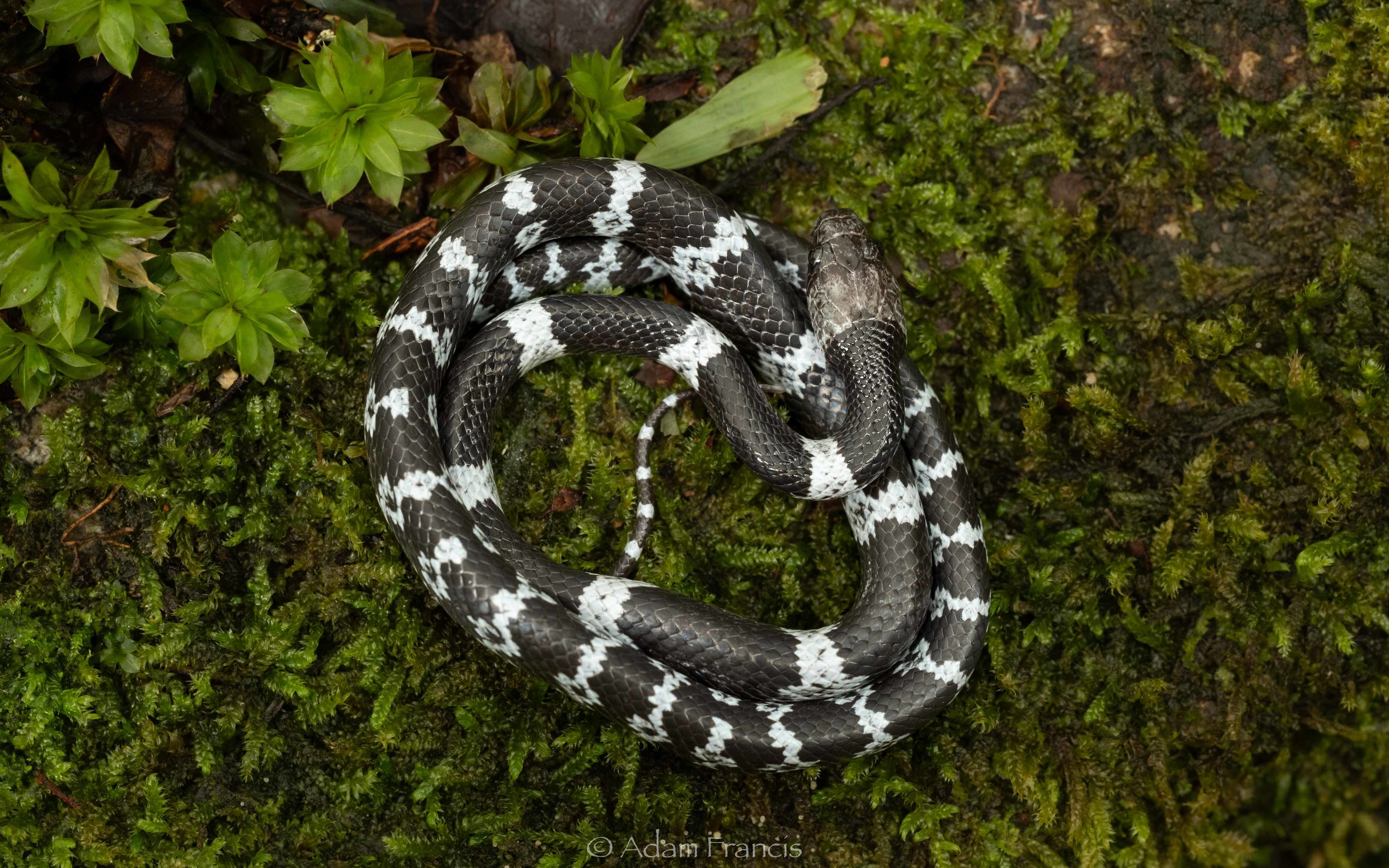
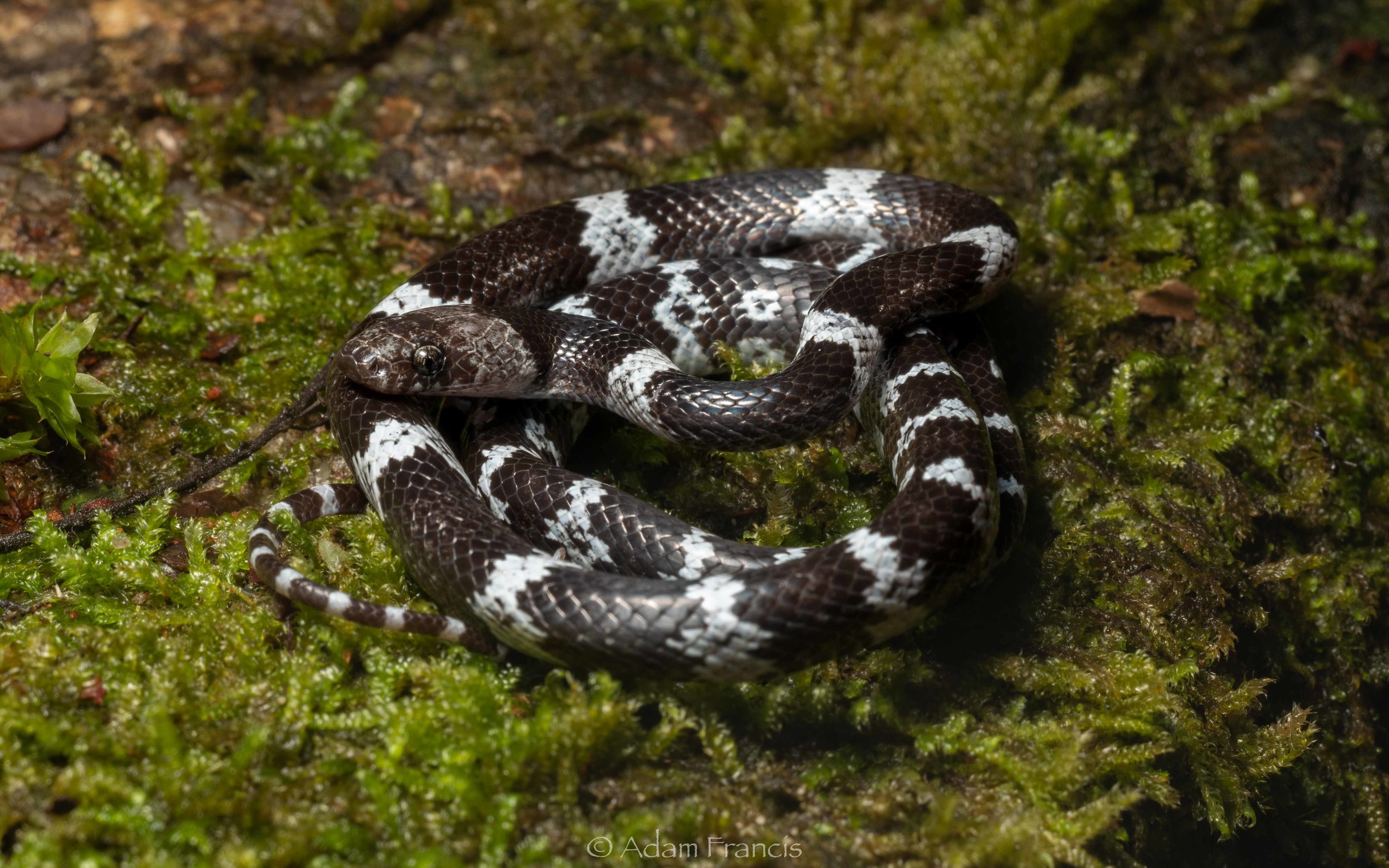
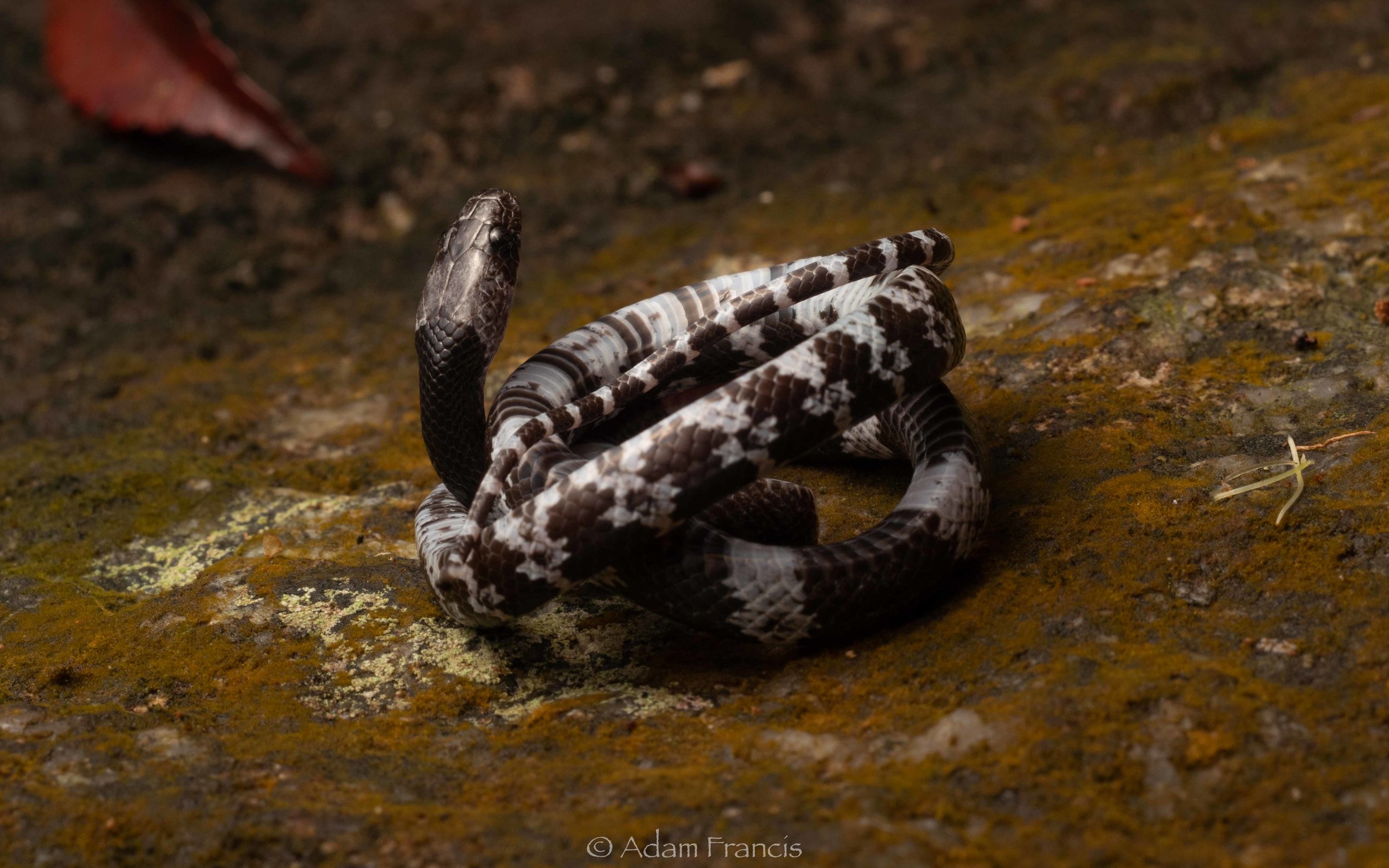
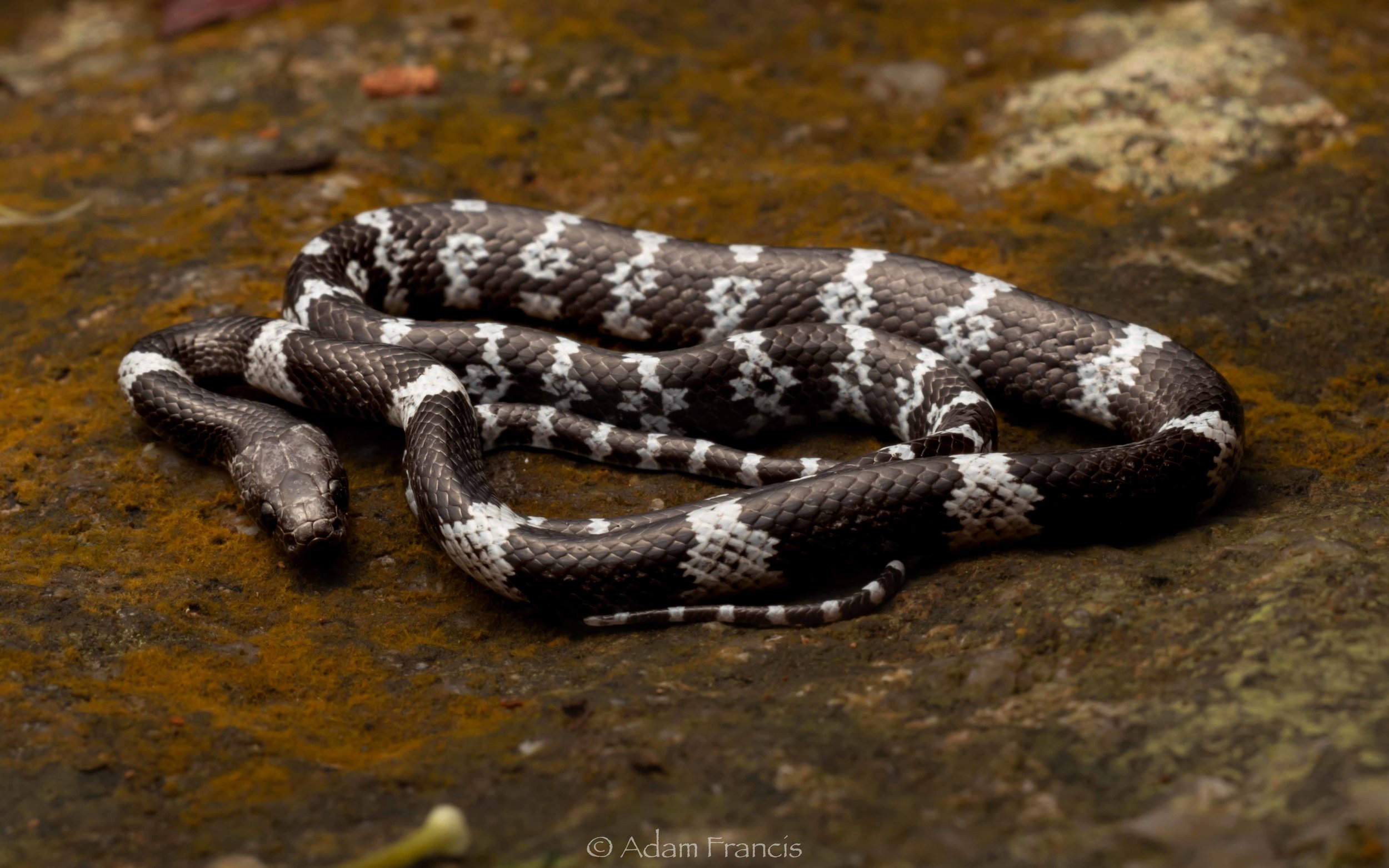
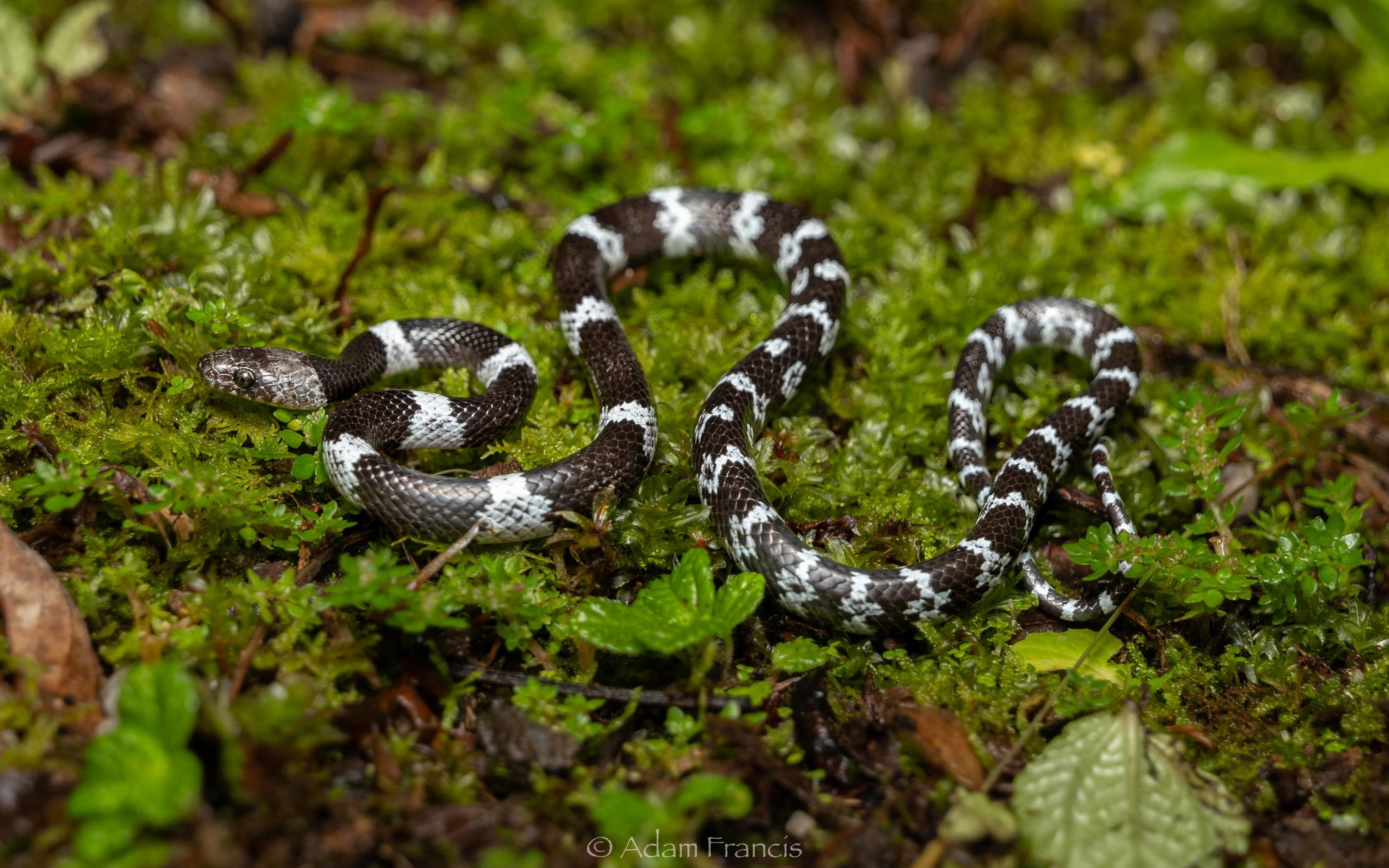
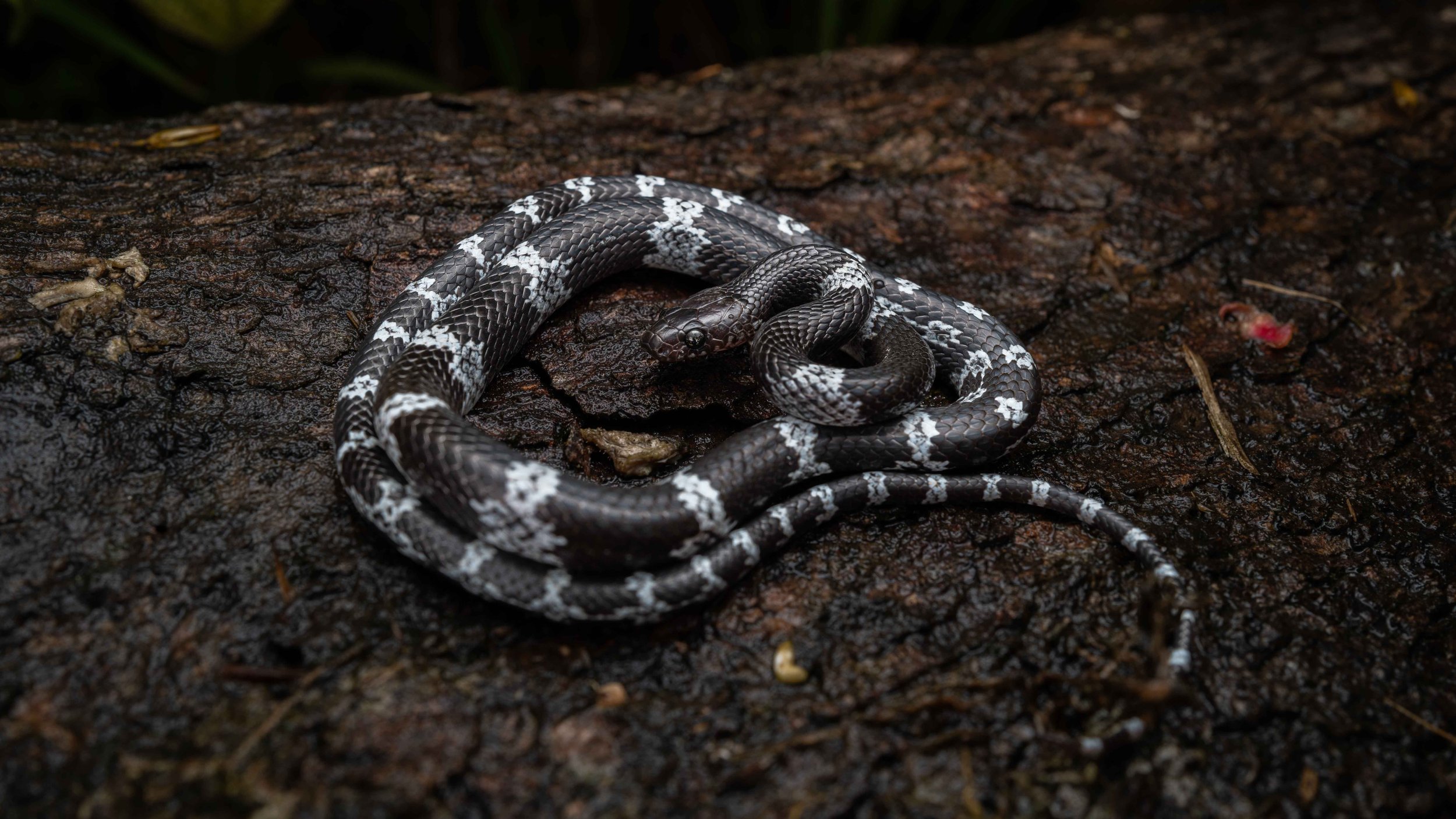
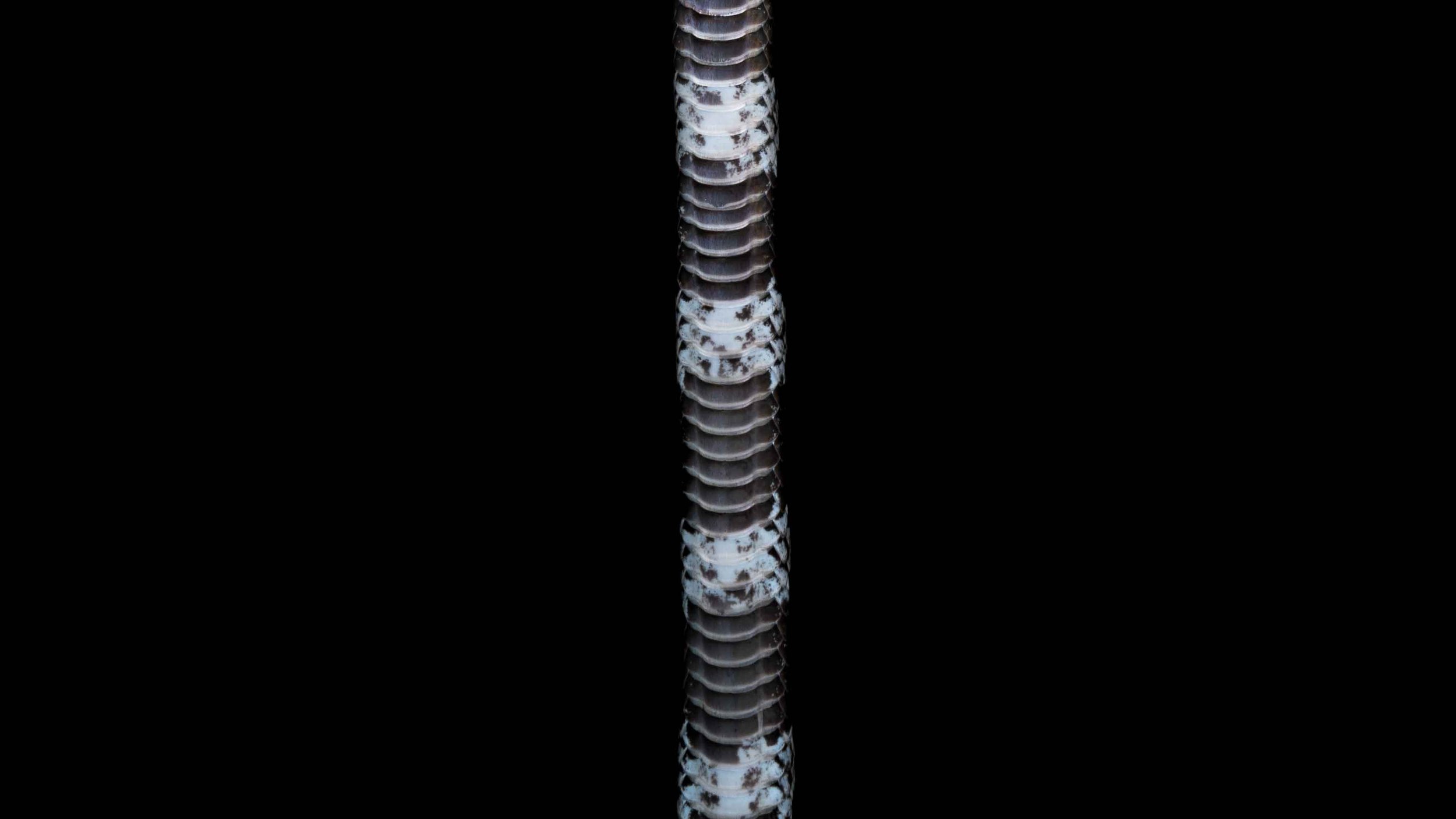
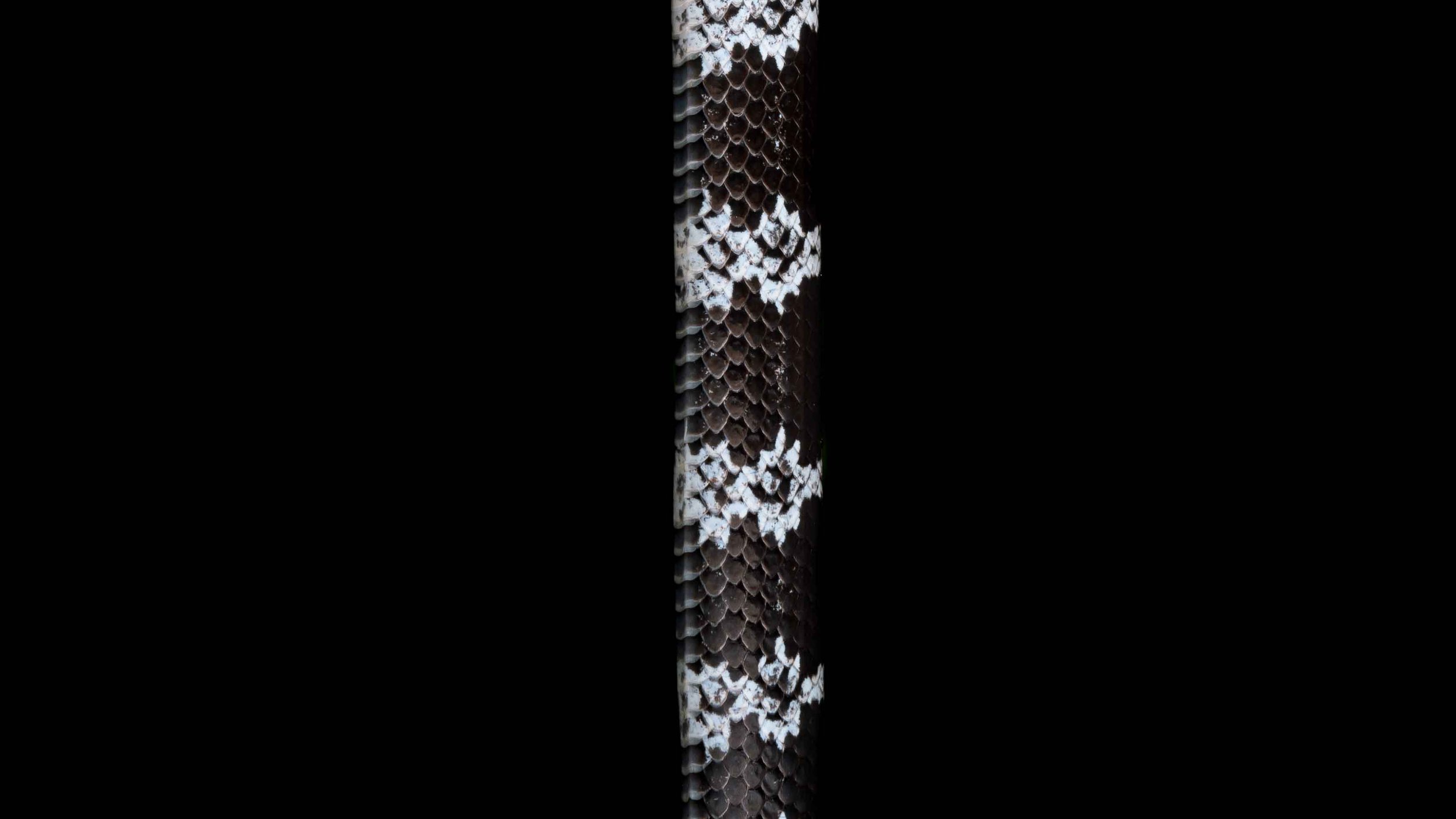
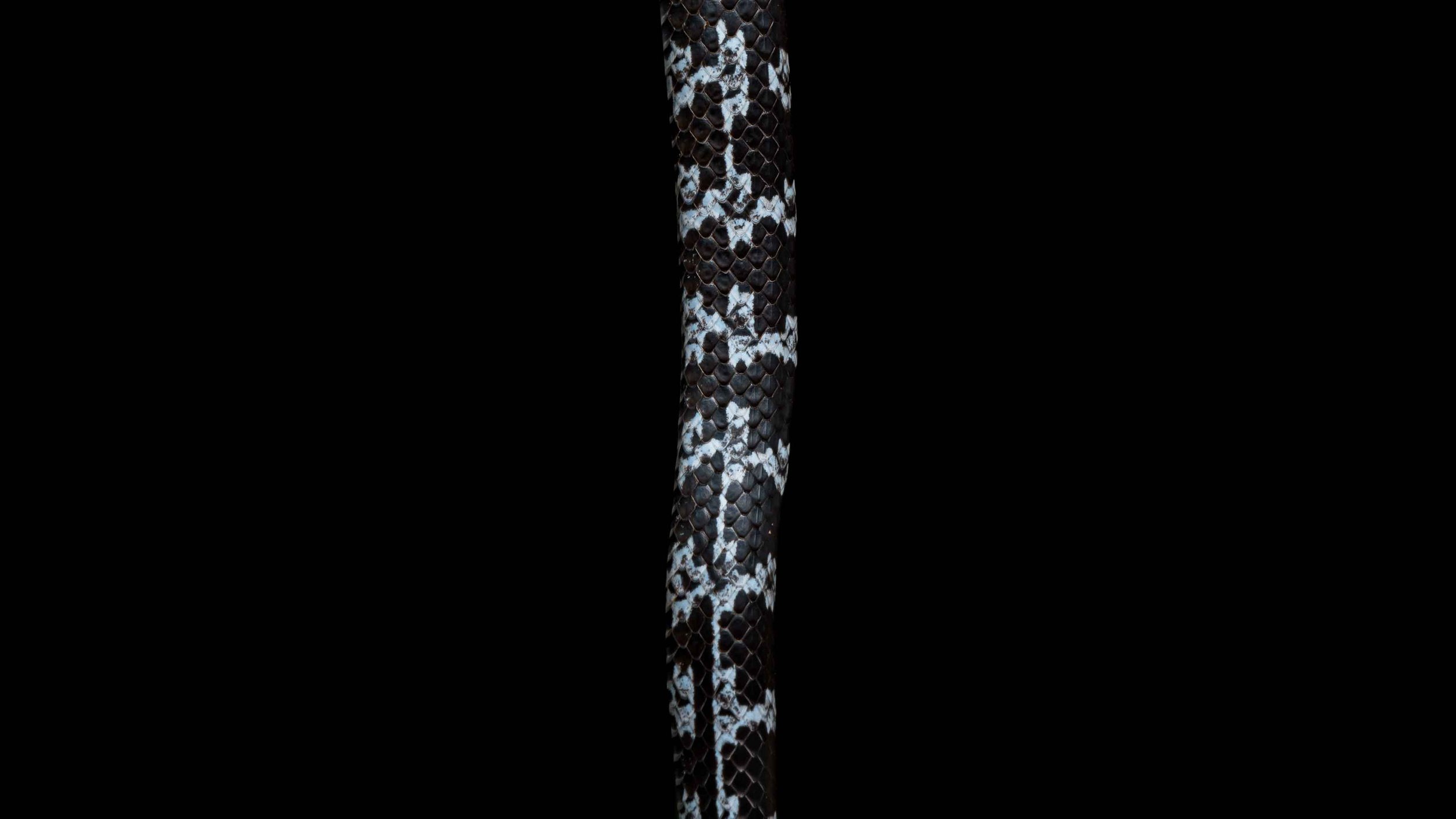
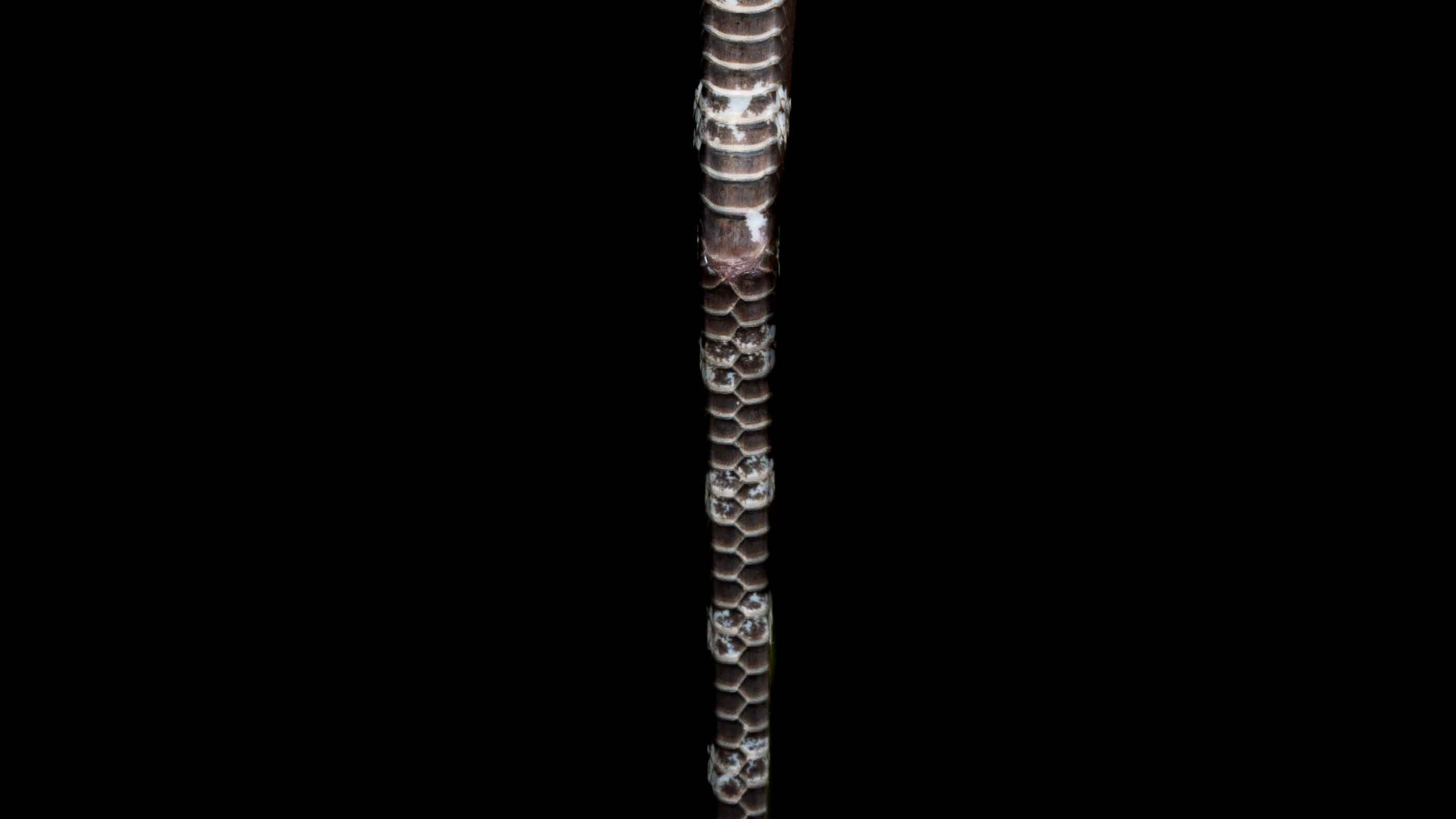
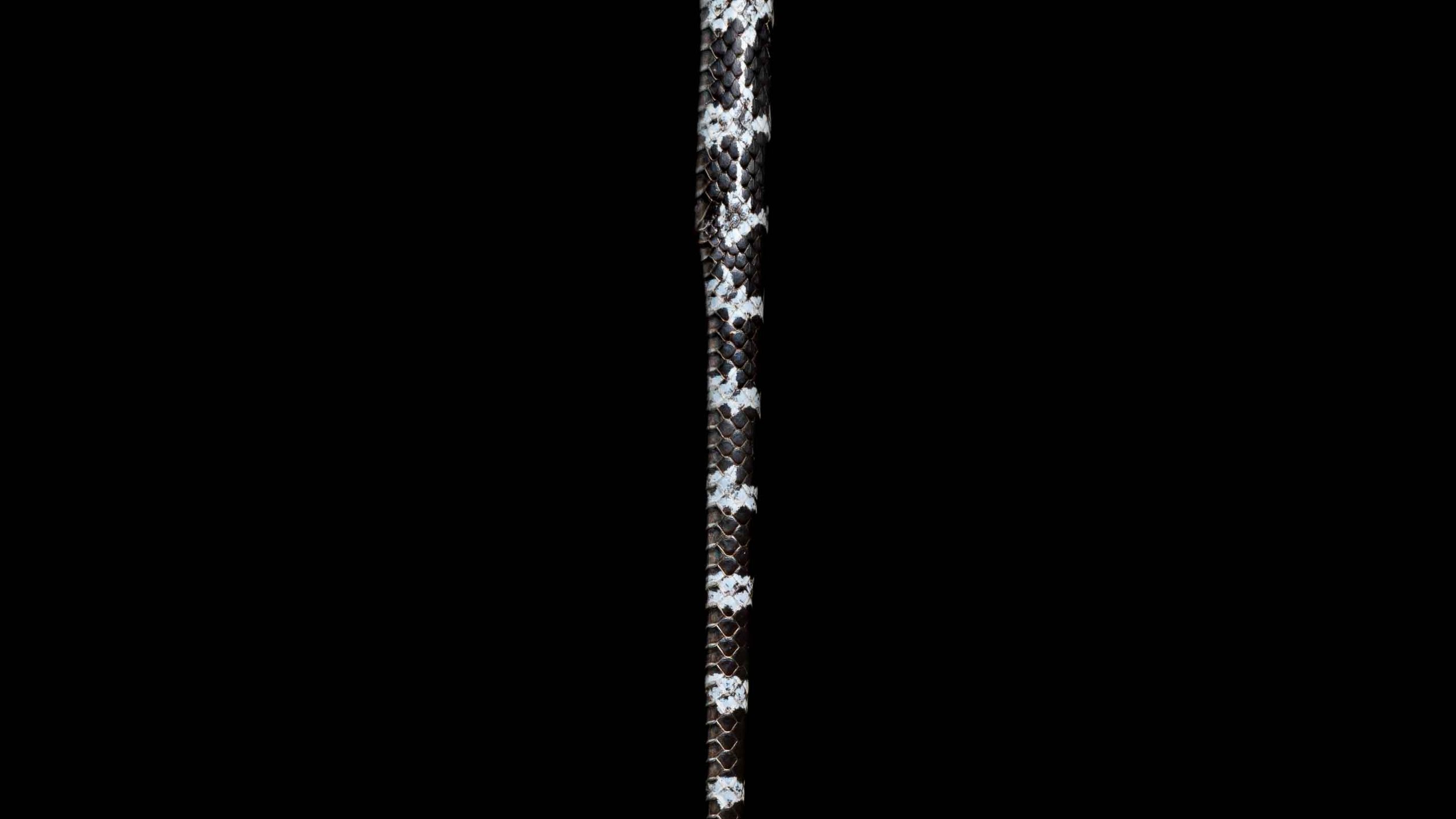
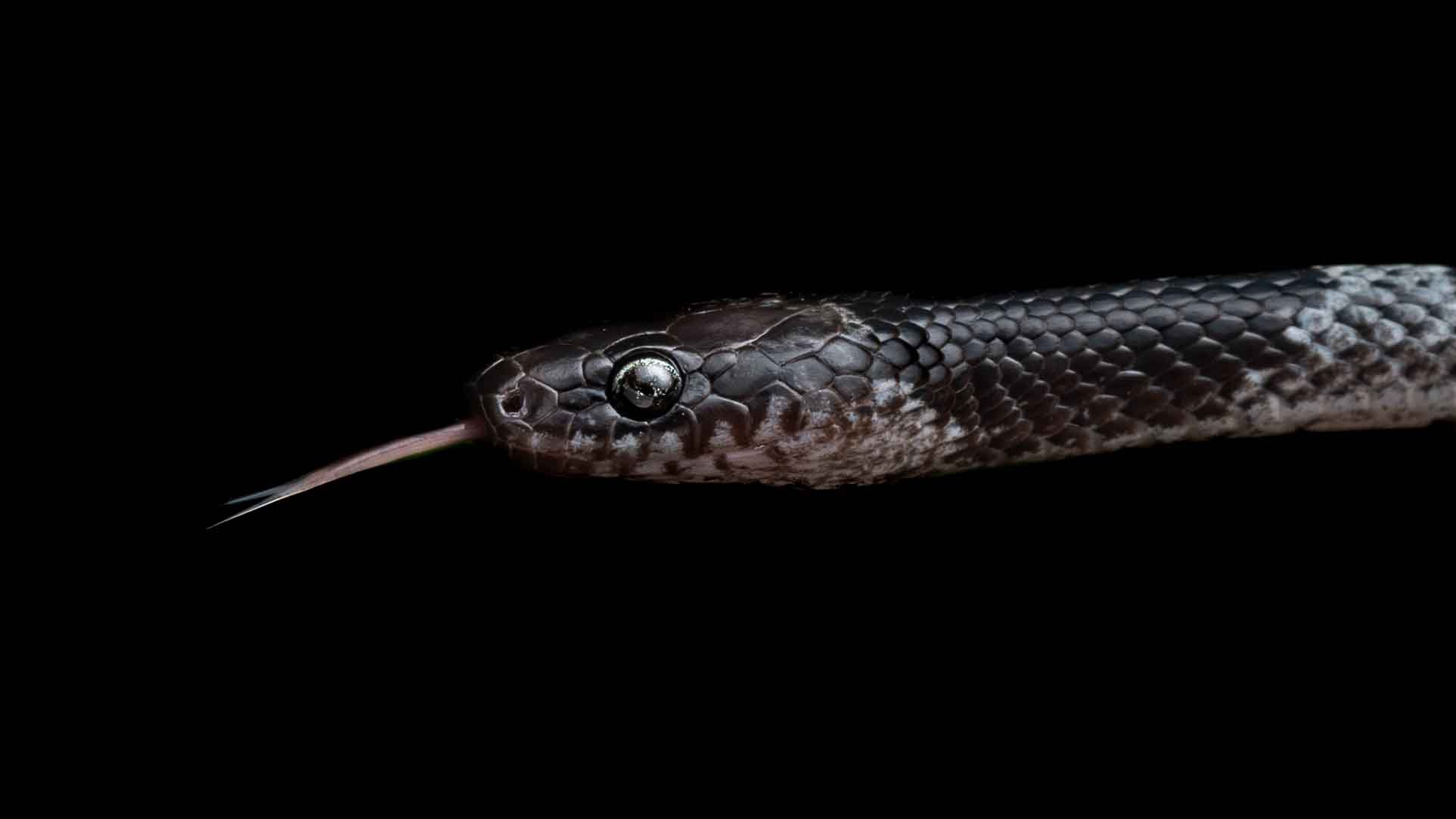
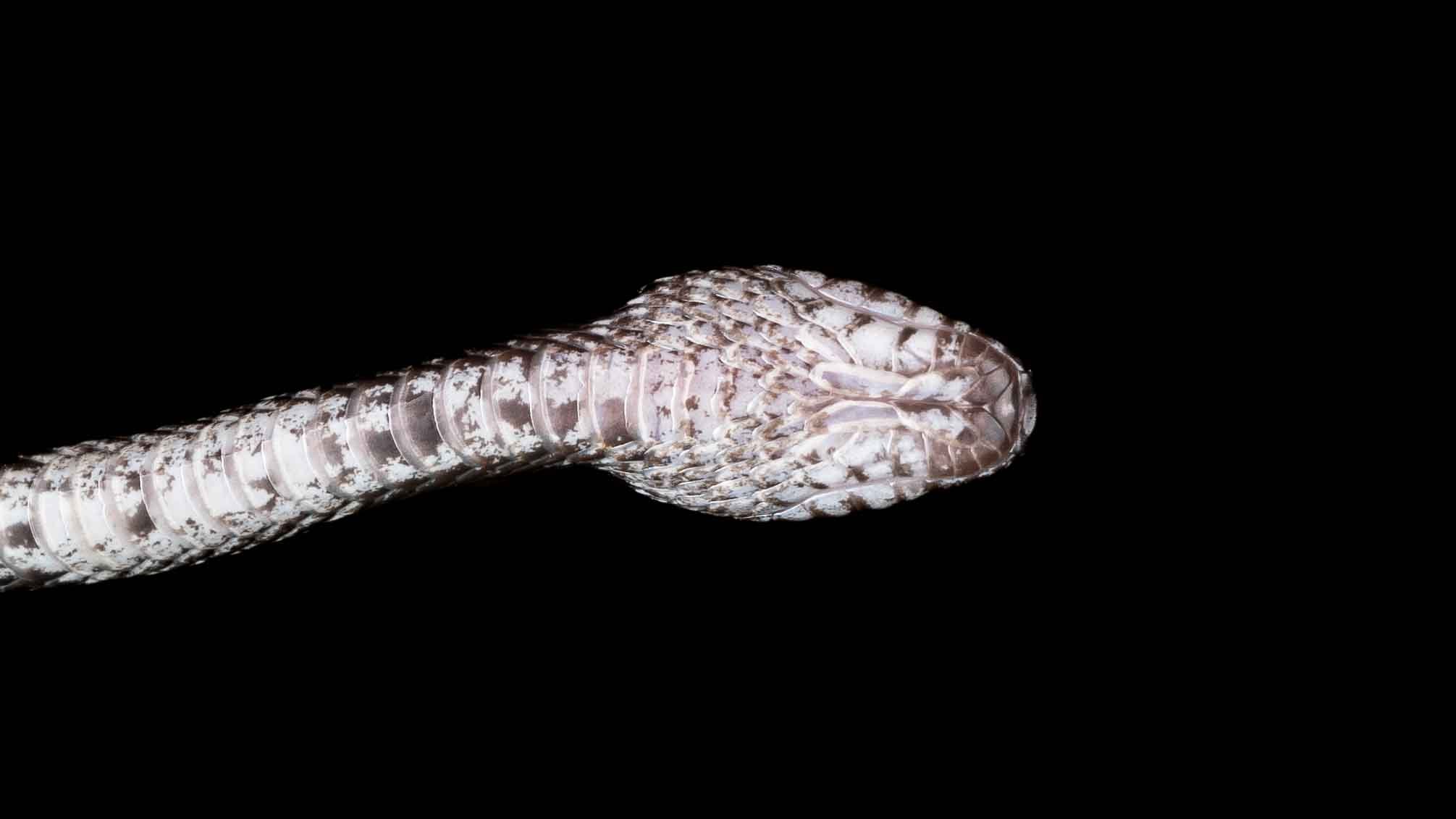
DESCRIPTION
Black and white banding very similar to some species of Krait in appearance. Banding generally high contrast in juveniles fading heavily in adults. Bands tend to stay uniform in spacing toward the first half of the body then tighten toward the tail. Banding pattern changes towards the tail exhibiting a distinct diamond or cross pattern. Small head and reaching a length of ~90cm.
BEHAVIOR
Active at night and mainly hunts small lizards. Generally docile when approached they are not quick to bite but will do so if disturbed or handled. Normally slow and deliberate in their movement they are capable of moving quickly when fleeing. Hunt near water sources, forest floors and water conduits. Often found at slightly higher elevations.
HABITAT
The Butler’s Wolf Snake is a terrestrial species often hunting in forested areas or water culverts. It can be found distributed across South East Asia but is not a regularly encountered species given its nocturnal nature, it is possible though very unlikely to bump into one on the trail and if so they should be give a wide berth and left alone due to similar appearance with the deadly Kraits.
MISTAKEN IDENTITY
NO SNAKE SHOULD EVER BE HANDLED BY ANYONE BUT EXPERTS: The Butler’s Wolf Snake can be potentially confused with some species of Krait, which are deadly. A Butler’s Wolf Snake should never be handled or approached due to the potential for confusing species.

